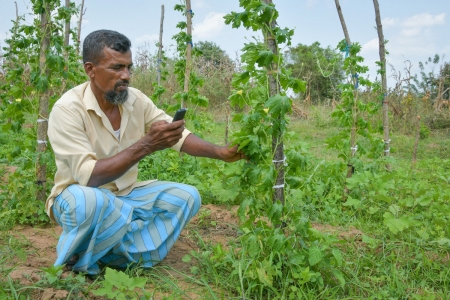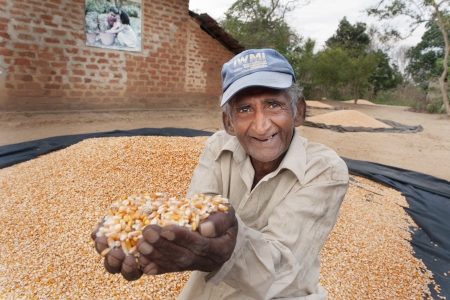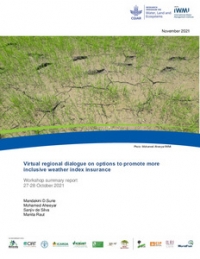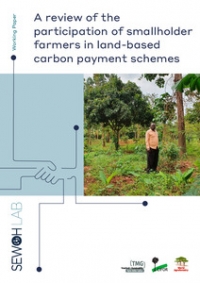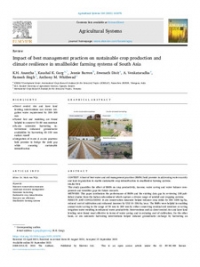Climatic uncertainty means that smallholder farmers need to have more confidence in the seeds they use. Therefore, the CGIAR Research Program on Water, Land and Ecosystems (WLE) and Alliance of Bioversity International and the International Center for Tropical Agriculture (CIAT) lead a Seeds for Needs program targeting these farmers with a diverse range of seeds that are able to thrive in a changing climate. Along with the seeds, they provide additional support to help farming communities adapt to climatic and other shocks, directly addressing their vulnerability to food insecurity.
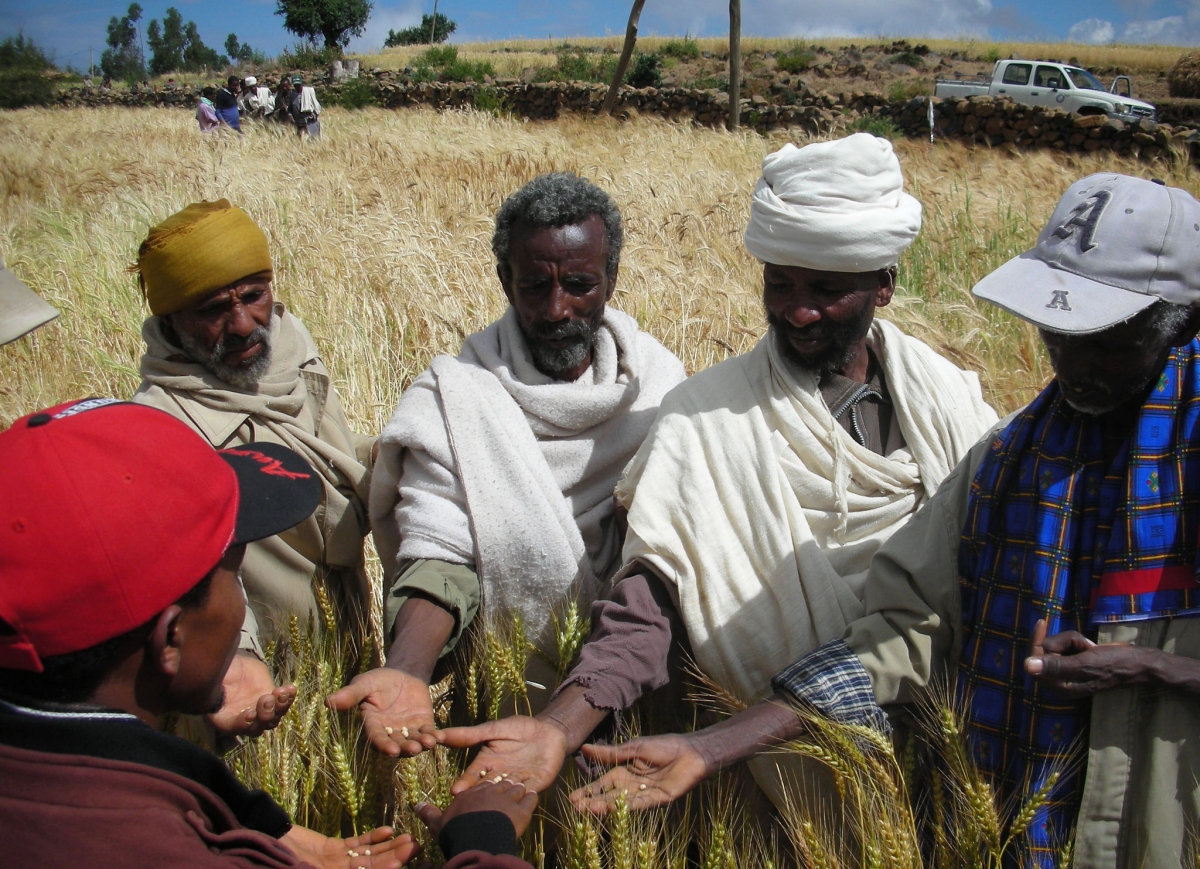
Seeds for Needs interventions are about much more than simply distributing improved seed varieties – they seek to provide support to farmers at different levels and across multiple areas of expertise, from the selection of appropriate genetic resources for improved seeds to cropping systems suited to specific agroecological conditions, as well as information on nutrition and conservation. The farmers themselves are invited to be part of on-farm experimental trials of selected seed varieties, and community seed banks linked with nationwide gene and seed banks are incorporated within an integrated conservation strategy.
Far from being passive recipients, then, smallholder farmers are engaged in a way that encourages them to make better-informed decisions for their own families, while strengthening their communities and fostering new networks.
The Seeds for Needs program, launched by CGIAR in partnership with the Ethiopian Biodiversity Institute (EBI) in 2011, has had a particular focus on female farmers, and has been implemented for staple crops such as wheat and barley in Oromiya, Amhara and Tigray states in collaboration with state research institutes. Women have played a key role in testing and distributing improved varieties through their extensive social networks and introducing them to existing conservation structures such as community gene banks. A 2019 survey of 1,008 households to assess the impact of the program for improved varieties of durum wheat found that wheat crop productivity and smallholder food security had both been boosted by the increase in uptake of diverse varieties.
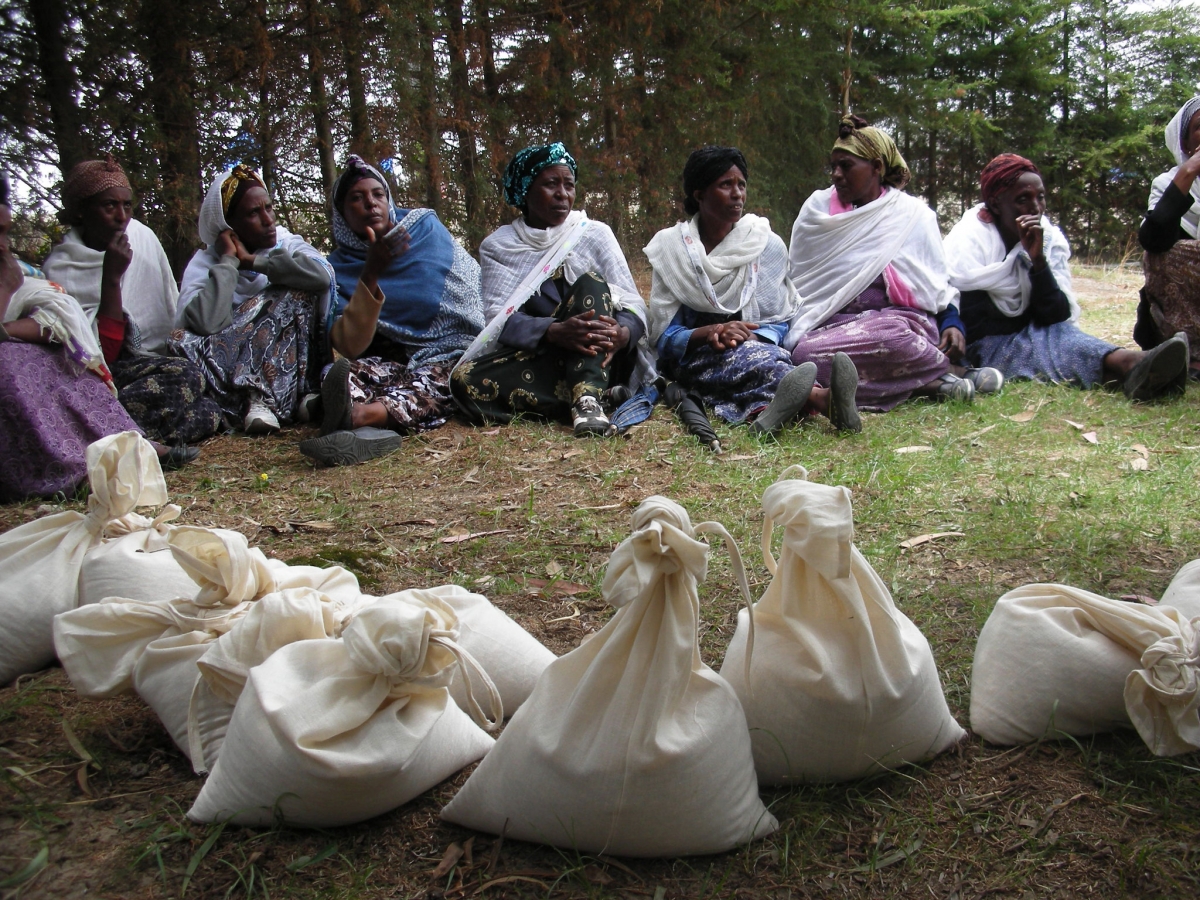
The Seeds for Needs approach has been used by other organizations in Ethiopia as well, for instance by the Integrated Seed Sector Development Program (ISSD), which has distributed 280 varieties of 17 different crops to 20,000 farmers.

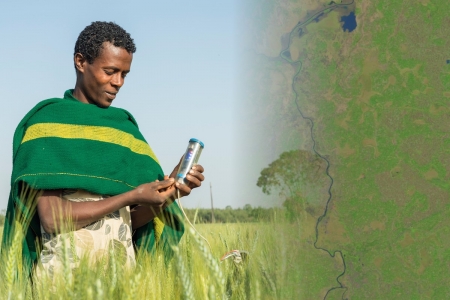


/index.jpg?itok=EzuBHOXY&c=feafd7f5ab7d60c363652d23929d0aee)


